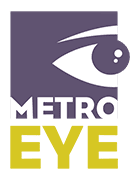The Patient Corner: Understanding your benefits
It is time to schedule your yearly eye health examination, but you are uncertain of what your vision benefits are going to cover. Most find that understanding these benefits can be quite confusing, and are left with questions about their benefits.
Here are a few answers to the most common vision insurance questions:
Will my examination be covered?:
Most vision plans cover one routine eye examination per year. It is important to make note of the date of your yearly exam, as your insurance will not cover the service if you utilize before your anniversary date. If you are visiting your eye care professional for an eye-related issue that is not routine, this would be considered a medical office visit and fall under your medical insurance coverage.
Does my vision insurance plan cover the cost of my glasses or contacts?
All vision plans are different in what they cover, but many offer a material allowance towards the purchase of glasses and/or contacts. It is important to obtain a detailed coverage description from your vision insurance provider to determine your exact materials benefits. Look to see if your coverage includes an allowance towards your material purchase, or a percentage off. Also, make note if your material benefit can be used yearly or bi-yearly.
If you are a contact lens wearer, you might find that your vision insurance also provides an allowance toward the purchase of your yearly contact lens supply. This allowance can be applied to your contact lens fitting or the lenses themselves. Most vision plans provide an allowance to apply to your frames or your contact lens supply, not both.
Does my eye care provider accept my vision insurance?:
Most eye care providers are participating providers for the major insurance plans, however, you can always call your Optometrist’s office to find out if they accept your specific plan. Most patients will find that your provider’s office will check your benefits for you, and can explain any unanswered questions that you might have about your benefits.

